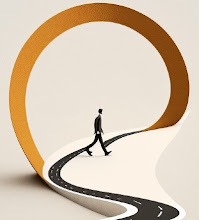In fact, here it is on video:
Encore!
He played Bach for 45 minutes, made $32 in tips from 20 people out of the thousands who walked by. 6 stopped to listen to him. They didn't realize he was a world class performer playing a violin worth $3.5 million.
Just two days before Joshua had played in a sold out theatre to an audience who had ponied up an average of $100/ticket to be there.
This experiment is often cited as a wake up call to help people realize that they don't take the time to appreciate the beauty in the world. In a commonplace environment something of amazing beauty can go unnoticed. I think there's another interesting facet to this little scenario: People don't pay for what we think they pay for. Hearing music in a concert is so much more than the music itself, otherwise we'd just buy the CD and listen to Joshua Bell at home.
So without further ado, I present to you a non-exhaustive list of 8 things that people pay for when they go to a concert that they probably don't even realize on a conscious level:
What people are really paying for
1. Being in a crowd of like-minded people
It's hard to enjoy a concert, movie, or other entertainment if everyone else is bored. It's also more difficult to stay bored if everyone around us is enjoying the experience. We're heavily influenced by the reactions of people around us and part of what people pay for at a concert is to be part of the crowd. The only people who will be bored when everyone else is having fun is people who don't feel like they fit in to the crowd.2. Dressing up in evening wear
There is a certain formality with classical music concerts that is understood. When you're paying $100 a ticket, it's a special occasion so you want to dress up. But you also are willing to pay $100/ticket to have an occasion to dress up. It makes the event feel special, even though it's a bit of a chicken-and-egg scenario3. To say they saw a famous musician
Around the water cooler the next day:"So what did you do last night?"
"Oh not much... just saw JOSHUA BELL with the wife. It was pretty amazing. He played music, dontcha know, and I have a pretty awesome story to tell"
4. To assume the identity of a music aficionado
There's something appealing about being thought of as classy, special and important. Classical music carries with it an air of importance that some find pretentious but others find appealing. Part of what people pay for is to fit in with the crowd.5. To score points with the missus
Maybe you don't like classical music that much, but the wife does, and it's pretty awesome when your wife thinks you're a hero for taking her on a special date to a formal concert for $100/ticket. It makes up for taking her to MacDonalds on her birthday.At this point you may be starting to notice that a lot of what we secretly pay for is to confirm our identity and feel important.
6. To be surrounded by the sound
As a musician myself who has played in the metro, let me tell you, the acoustics are terrible. Horrible reverberations, noise of the metro going by, the sound doesn't carry, and the voices get muffled by all the commotion. Classical music is very nuanced. Part of what people pay for with a concert is a venue that has good acoustics so you can hear these nuances.7. Their own preparation
Again, in people's minds, the more you prepare for something the more special it is. Buying tickets in advance, making a date with the wife, hiring a babysitter, getting dressed up, getting in the car, going to a nice dinner beforehand, rushing to get there in time, and turning off the cell phone are all part of the experience. If the music is just sitting there as you walk by on the way to work, it's not as special because no work was involved.Incidentally this is similar to the reason people who win the lottery will end up broke again a few years later. When you don't work to get money you won't feel the need to be as careful with it as with your salary that you work for.














0 comments:
Post a Comment